We're an affiliate
We hope you love the products we recommend! Just so you know, we may collect a share of sales or other compensation from the links on this page at no additional cost to you. Thank you if you use our links, we really appreciate it!
Cats are one of the most adorable companions to have at home and sometimes we don’t understand their odd behaviors such as eating your hair, so you’re probably wondering, “why does my cat eat my hair?”
One of the weirdest habits cats often do is biting or eating their parent’s hair. Discovering your cat licking or pulling your hair while you are chilling at home can surprise you, especially if you are a new cat owner.
Wild cats that live in groups exhibit the behavior of mutual grooming called “allogrooming,” where they form a group and rub, lick, and gently bite each other.
They are seen most often interacting in this way with their closest members, often siblings and parents. Through these intimate grooming moments, relationships are solidified, and possible tensions are lessened.
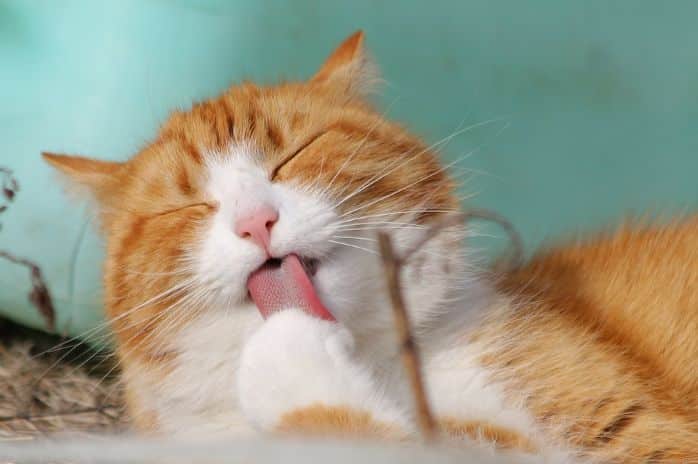
This behavior can be annoying and weird for most pet parents with long hair, and additionally, if your cat has consumed hair, it might lead to severe health conditions.
Read on to find out what is causing this behavior and how you can stop your furbaby from eating your hair.
Does My Cat Enjoy Eating My Hair?
There is a difference between a cat nibbling on your hair as it hangs off the couch and a cat eating hair that you naturally shed on the floor.
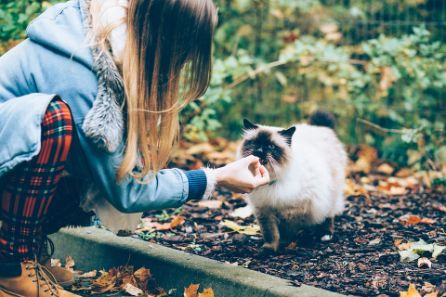
If your cat is playfully nibbling on your hair, then it’s likely that she just enjoys your scent and likes playing around with long stringy objects.
However, if she is eating hair to where you notice it in their stool, this might be more severe that may need a veterinarian’s attention. Read on to find out what are the top 10 reasons cats eat hair.
10 Reasons Why Cats Eat Hair
1. Feline Pica
Pica is a scientific way of describing an eating behavior where your pet cats and dogs consume items that have no nutritional value.
While this is usually a disorder that you hear about in humans, it turns out that cats can also suffer from this condition.
It usually manifests itself when cats eat things like plastic, clothing, rubber, paper, and various non-edible items around the house, including your hair.
A pica habit may also appear in cats that were weaned too early. The younger a kitten is detached to their mother, the more likely the cat is to crave for hair, its pet parent’s arms, earlobes, or hair.
Early weaning is thought to assist in encouraging oral type behaviors, including chewing hair and sucking on their pet parents.
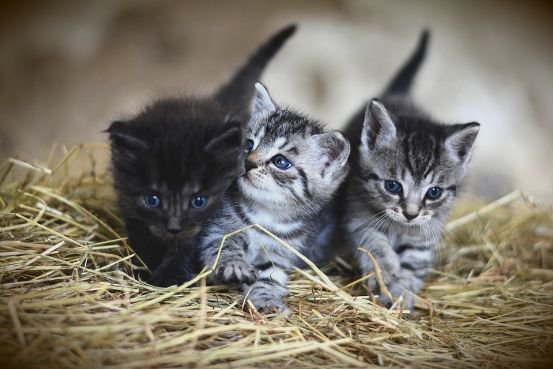
2. Soothing and Stress Relief
If your cat is anxious, or stressed, chewing their hair or pet parent’s hair can be a way for them to feel reassured of the bond you share, which will help soothe her anxiety.
Some people believe that eating hair to cats can be related to self-soothing behavior, similar to thumb sucking in children.
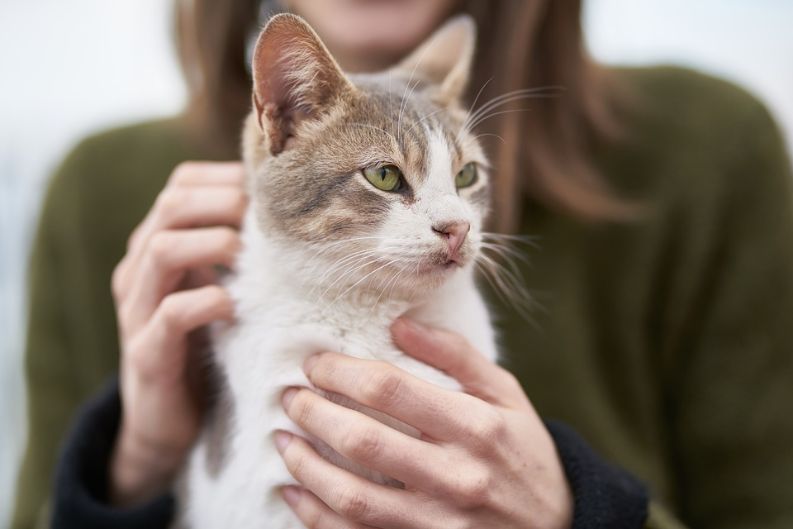
If this behavior is in moderation and doesn’t bother you, you can sit back and enjoy your furbaby’s affection.
But if it persists or gets more frequent, take into consideration any situation that may be stressing your cat out.
3. Environmental
Cats are known to be curious pets, and they discover the world with their mouths since they do not have grasping hands.
You furbaby may be pulling your hair and eating it because they are most likely bored, and they want to get your attention for some playtime.
It may be helpful to give your furbaby more toys and petting time to keep her busy and prevent chewing on random strands of hair.
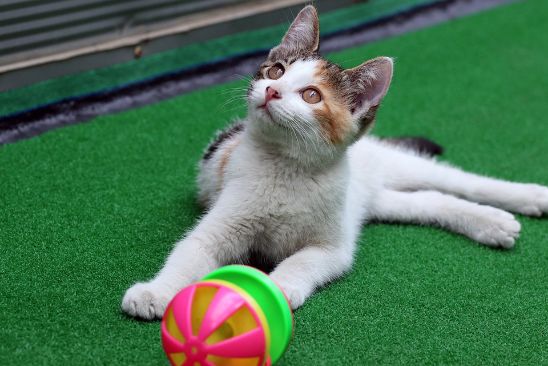
It should be noted that cat anxiety caused by changing your furbaby’s environment, such as moving into a new home, having new pets, or even having a new baby, can lead to this hair-eating behavior.
4. Genetics
Many breeds are known for chewing shoelaces and electronic cords, destroying books and papers, among many other things.
You typically see this in breeds that require lots of attention and have lots of energy. If the objects mentioned are nowhere near, cats can resort to chewing on their pet parent’s hair.
Some cat breeds that have long fur coats, such as a Siamese, have the habit of grooming their coat often to the point of eating it. This can lead to grooming their pet parent’s hair and eating it as well.
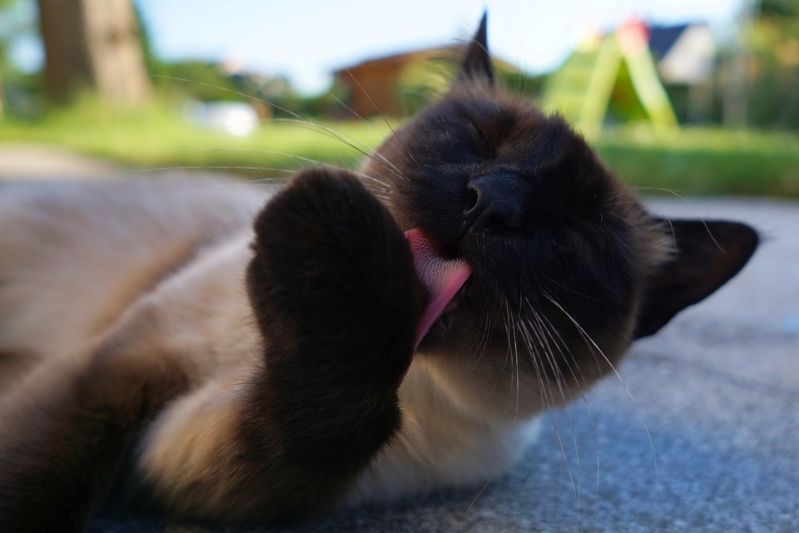
5. Medical Problems
Some diseases, such as feline leukemia, feline immunodeficiency virus, brain tumors, and diabetes, can trigger your cat to have the unusual urge to chew on hair.
While these instances are rare, it is something to be aware of if your cat behaves differently and doesn’t appear to be able to stop eating your hair.
6. Dietary Deficiencies
Cats tend to eat plants and other edible things around the house if they lack proper nutrition or even eat some grass if they have a stomach ache to induce vomiting.
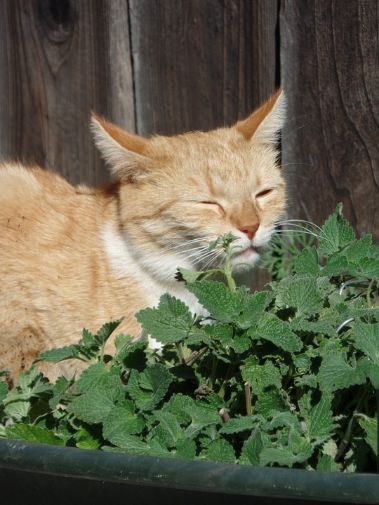
If you do not have a plant in your home, your furbaby may consume hair to supply the lacking fiber in their diet.
7. Compulsive Chewing
If your cat’s hair eating habit becomes more intense and more frequent, then she may have become a compulsive chewer. This can easily be recognized if catnips, feather toys, and treats cannot distract your cat from chewing.
Once you have experienced this indestructible behavior, consult your veterinarian immediately to help you identify possible triggers that provoke chewing, or if the trigger has now moved into a response your cat needs to fulfill.
8. Hyperthyroidism
One of the symptoms of hyperthyroidism (hyperactivity of the thyroid) in cats is the sudden urge to chew on human hair. This disease is typically common in older cats around the age of 12 and 13 years old.
If you have a senior cat exhibiting this behavior and other symptoms such as sudden weight loss and an extreme appetite, be sure to make an appointment with your veterinarian.
9. Cats like the taste of human hair
This may come as a surprise, but your cat may simply like the taste of some hair products that you are using.
Generally, cats do not get attracted by strong, citrus-scented products, but maybe you are using a hair product with a milder scent that they find appealing.
10. A way of affection
Grooming is one way for cats to show affection to other cats and their pet parents. Cats often do this on the necks and heads of their grooming partners, so it may be the same for their pet parents.
Grooming can be very soothing and a way to relieve stress for your furbaby.
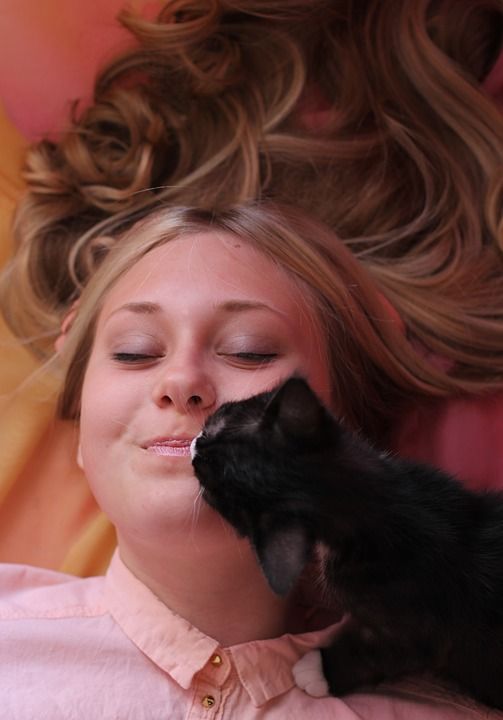
Once you’ve noticed that the hair-biting behavior has become more frequent and intense, it’s always better to make an appointment with your veterinarian to check your furbaby.
How to Stop your Furbaby from Chewing Your Hair
1. Determine the cause
You have to consider first whether the behavior is normal. If your cat has routinely licked or chewed your hair rarely and in moderation, this is regarded as a standard practice for them.
Minimal chewing could be a sign of affection or how your cat marks you as their companion. Although this behavior may be annoying, and you might want to stop it, it’s nothing to be alarmed about.
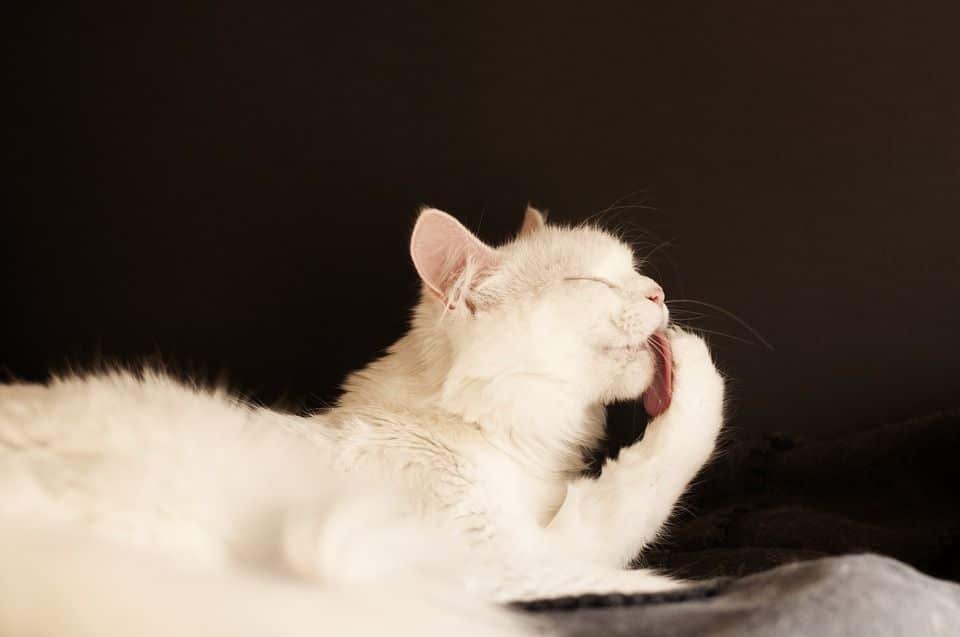
Grooming is an essential part of a cat’s social and emotional life from the moment it is born. Just as cats will lick one another to show affection, your cat may give your hair a few licks to show you how they love you.
2. See if there are stressful situations
Cats will often begin this hair licking behavior during stressful and anxious times, such as having new furniture, a new pet, or a new home.
Consider whether any significant changes have recently occurred in your cat’s life that may have triggered the hair licking behavior.
Remember that what a cat finds stressful may not be the same things you find stressful. Common triggers for cats include having visitors over, having a loud noise nearby, or seeing other cats through a window.
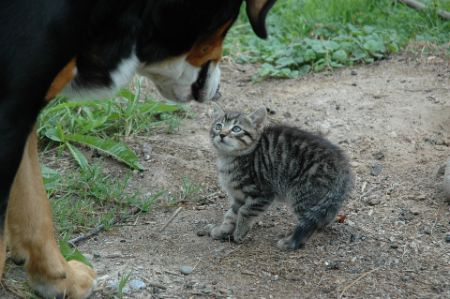
It is essential not to use physical punishments in an attempt to stop the hair licking or chewing. This negative reinforcement will only increase the level of anxiety your cat feels.
3. Step away from your cat when it attempts to chew your hair
If you stay in the same place as your cat while it licks or chews on your hair, you send the signal that its behavior is desirable. Immediately get up and leave them be for the meantime.
While in bed, you can place your head under the sheets to get away from your cat’s biting. You may also try putting a pillow between you and your cat to set boundaries.
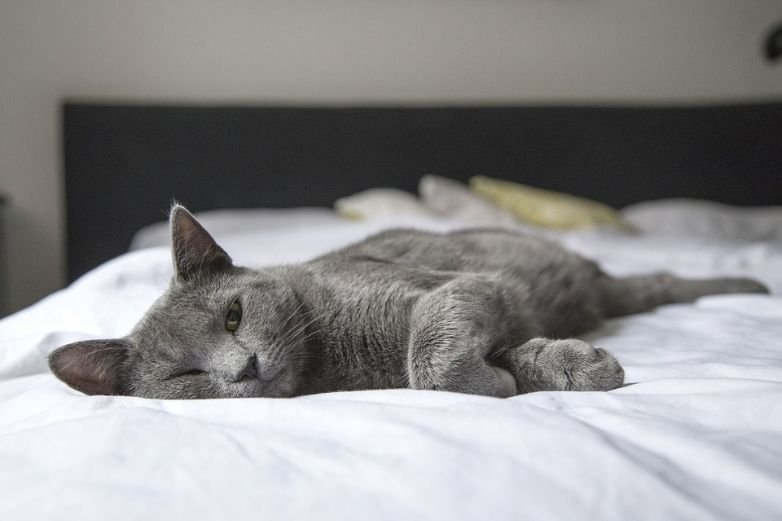
Like all other training methods, you have to be consistent and patient when discouraging the behavior.
For this tip to work, you need to repel the chewing behavior every time your cat begins going after your hair, and you must act immediately. Inconsistent responses will only confuse your cat.
It will take weeks, or perhaps even months, for your cat to grasp this idea. Eventually, they will begin to understand that licking or chewing is not desirable and that when it chews or licks, they will lose your company.
4. Provide a distraction
Giving other desirable treats such as catnip, toys, or treats is one of the best ways to get your cat to leave your hair alone.
Physical exercise and mental stimulation are also great distractions for your cat that will not cost extra.
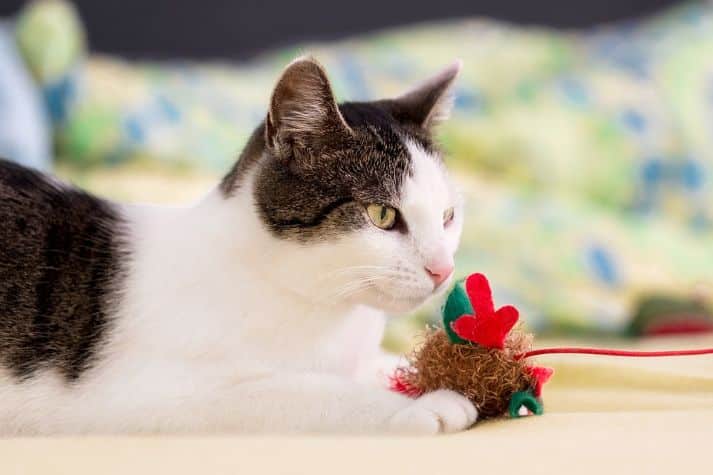
Five to ten minutes of exercise daily is enough to eliminate unwanted behaviors in your cat by reducing stress and anxiety.
You might consider using a laser light or a feather wand to get your cat moving while sitting at your couch.
5. Help your cat cope
If stress does seem to be the reason for this behavior, try to find ways to help your furbaby cope with the situations that are causing it.
One way is to provide a safe space with everyday items that may ease the stress of being in a new home while spending extra time together to relieve the anxiety related to the arrival of a new pet.
Investing in feline pheromone products that come in wipes, sprays, collars, and diffusers is another way to help your cat relieve stress.
These chemicals mimic the pheromones given off by cats, helping your troubled furbaby cope with things beyond your control.

6. Switch hair products
If the hair-pulling or eating behavior always happens when you use a particular scented shampoo or apply a specific hairspray, stop using that product and try something with a different smell.
Choose an unscented product if possible, or find one with a scent that cats do not like.

Scents That Cats Do Not Like
It is surprising to learn how powerful our furbaby’s smell is, and surprisingly, cats have a stronger sense of smell than many dog breeds do!
Since our furbabies often experience odors more intensely than humans do, they don’t always perceive scents the same way.
In this section, we will be finding out what kind of scent cats do not like, so you know what hair-product scent you can use.
1. Citrus
The citrus scent is known as being repulsive to cats. You can use this to your advantage by throwing orange peels around your garden to keep cats away or spritzing a citrus-scented air spray on indoor fabric that you don’t want your cat scratching up.
To avoid further hair-eating behavior, use a citrus-scented hair product instead.

2. Lavender, geranium, and eucalyptus
Lavender, geranium, and eucalyptus plants give off an odor that cats dislike. Most cats will stay away from these scents, but keep in mind that these plants are still mildly toxic to cats; if consumed, they can cause excess salivation and nausea, vomiting, anorexia, depression, or dermatitis.
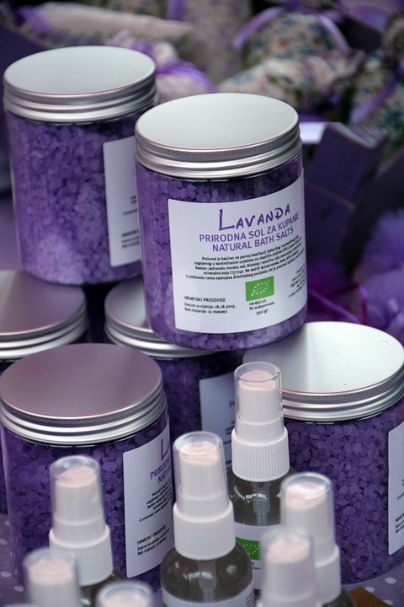
3. Mint, wintergreen, and menthol
One known scent that is also popular in shampoos is mint and strong mint-related odors, such as wintergreen and menthol.

We hope we helped you with your cat’s hair-eating behavior. With our tips, we assure you that your question, “Why does my cat eat my hair?” is now resolved.
Please share your thoughts and experience after trying our tips with the pet parent community in the comments below!
Laura is the founder of Furs'n'Paws. She is a also a pet writer and expert with more than 20 years of experience of working with dogs and cats. She developed a very strong love for animals at a young age. Her passion led her to establish a thriving pet sitting and dog walking business in Dubai. As an expert in pet training, behavior, and nutrition, Laura is committed to helping pet owners and pet lovers by offering high-quality information on a wide range of topics.


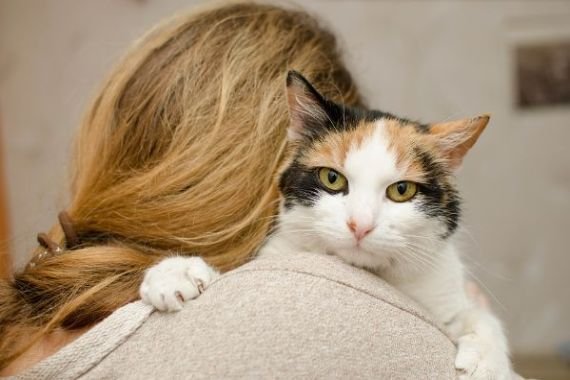
No responses yet